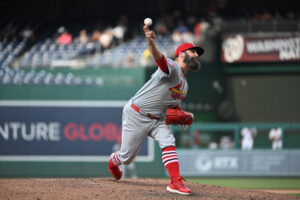Rumors are a part of the game of baseball. At this season’s trade deadline, there was chatter that the Red Sox may trade for baseball phenom Shohei Ohtani. The rumors were just that; rumors. Fast forward to a little over a month later and things are drastically different.
Shohei Ohtani is reportedly interested in the Red Sox – where his former teammate Masataka Yoshida plays👀⚾️
#大谷翔平 #GoHalos #DirtyWater pic.twitter.com/4sc3gqnBYr
— Sportskeeda Baseball (@sportskeeda_mlb) September 15, 2023
The Red Sox Pursuit of Shohei Ohtani
On August 23, just over three weeks after the trade deadline, Ohtani tore the ulnar collateral ligament (UCL) in his pitching arm. Nearly a month later, the Los Angeles Angels placed Ohtani on the 10-day IL with an oblique strain. In the latest development of Ohtani’s downward spiral as of Friday, his locker at Angel Stadium of Anaheim was cleared out after Friday night’s game against the Detroit Tigers. As of this writing, there has not been a statement by the Angels about this situation.
The Case for Pursuing Ohtani as an Outfielder Only
Ohtani was a baseball prodigy. Was, because it cannot be certain that he will continue as both a pitcher and an outfielder. If he returns and is able to play the outfield, it would still be worth it for the Red Sox to pursue him in free agency. Adam Duvall will likely not be back with the Red Sox after this season. Signing Alex Verdugo to a contract extension is also not a given. Given those two scenarios, the Sox should sign Ohtani based on his defensive proficiency and bat alone. Yes, there is a risk Ohtani will not come back as the same player he was, but with high risk comes high reward. As cliché as that sounds, if Ohtani comes back as an outfielder, he would likely do so at a fraction of the cost he was projected to sign for when he was a healthy two-position player.
Risk vs. Reward
If Ohtani does come back as only a DH (think David Ortiz 2.0) would it still be worth it for the Sox? That depends on what kind of money he will ask for and whether the Red Sox are sure, without a doubt, that the money they gave Ortiz to only DH would be appropriate and comparable to repeat with Ohtani. That is to say, Ohtani will have to convince the Sox that he still has the potential to be as good or better than Ortiz for the duration of a long-term contract. The Sox may try to sign Ohtani to a one-year “prove yourself” contract, which also may not be a bad idea.
[metabet_core_game_tile query=”530858″ size=”350×300″ site_id=”sportseventsguide”]
The Case for Pursuing Ohtani as a Potential Two-Position Player
While a UCL tear is a fairly common injury, the chances of a player returning to the level of production they were performing at prior to the injury is about 66%, according to a study done by Stephen J. Thomas and colleagues from UCLA, in 2020. This study was published in the Orthopedic Journal of Sports Medicine.
Sometimes fans want to disregard the greater than one-third chance the Red Sox will make the wrong decision. Ohtani could be a shell of the player he once was in any position he plays for Boston. Conversely, front office personnel may see that even a one percent risk Ohtani does not return to form is a risk not worth taking. If the Red Sox think Ohtani’s asking price is too high and have even the slightest concern about him returning to the player he once was, in any capacity, then they will let him walk.
Takeaway
Shohei Ohtani was on his way to setting the record for the largest contract in baseball history but now finds himself with an uncertain future. The Red Sox need to do due diligence when deciding whether the money Ohtani is asking for is fair considering the UCL tear and oblique strain that ended his season (and his Angels career, from the looks of it). If they feel he will return to form and sign him at a fraction of what he was going to make before his injuries, then they’ll likely go after him. If he signs, that may not mean Ohtani plays any position other than splitting time as an outfielder and DH, or, potentially, solely DH. All things considered, the risk of signing a one-time baseball phenom seems to outweigh the risk of not signing him.
Photo Credit: Kyle Ross-USA TODAY Sports






